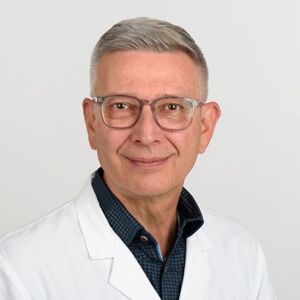Medication and non-drug measures are available to treat dementia. Precise treatment can always have a positive influence on the further course of the disease. Each case of dementia is treated individually.
Aims of dementia therapy
Timely and comprehensive therapy therefore not only helps those affected, but also relieves the burden on relatives and caregivers. Targeted treatment enables people with progressive dementia to maintain their autonomy and make independent decisions for longer.
Effects of dementia treatment
- Reduction of symptoms,
- Delay of the disease,
- Improving the living situation of patients and their relatives.
Tip: If you are suffering from the onset of dementia yourself or have taken on the care of someone with dementia, you should seek help as early as possible. Find out about available therapy options and offers of help. From the very first suspicion, it makes sense to consult your family doctor, who can then arrange a referral to a specialist in neurology or to our Memory Clinic.
Dementia: Medication
So-called anti-dementia drugs cannot cure the breakdown of brain cells. But they can slow down the progression of symptoms by several months to years. The aim of the medication is to maintain memory, concentration, orientation, judgment and comprehension in order to improve the everyday ability and quality of life of those affected. Ideally, anti-dementia drugs also have a positive effect on the behavioral problems associated with the disease. The following medication groups are currently available.
- Acetylcholinesterase inhibitors for mild to moderate dementia,
- Memantine for moderate to severe dementia.
Dementia: non-drug measures
The treatment of dementia not only includes medication, but also numerous non-drug therapies. The aim is to strengthen the self-esteem of those affected, actively use their remaining abilities and promote their well-being and independence. There are various therapeutic services to support those affected:
- Occupational therapy
- Memory training
- Behavioral therapy
- Music therapy
- Physiotherapy
However, not only the above-mentioned therapies are important for those affected, but also regular physical, social and mental activity, which can help to counteract the disease process.
